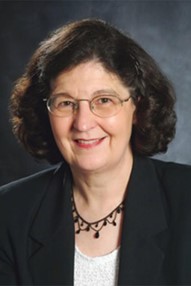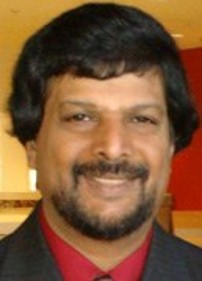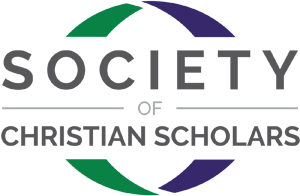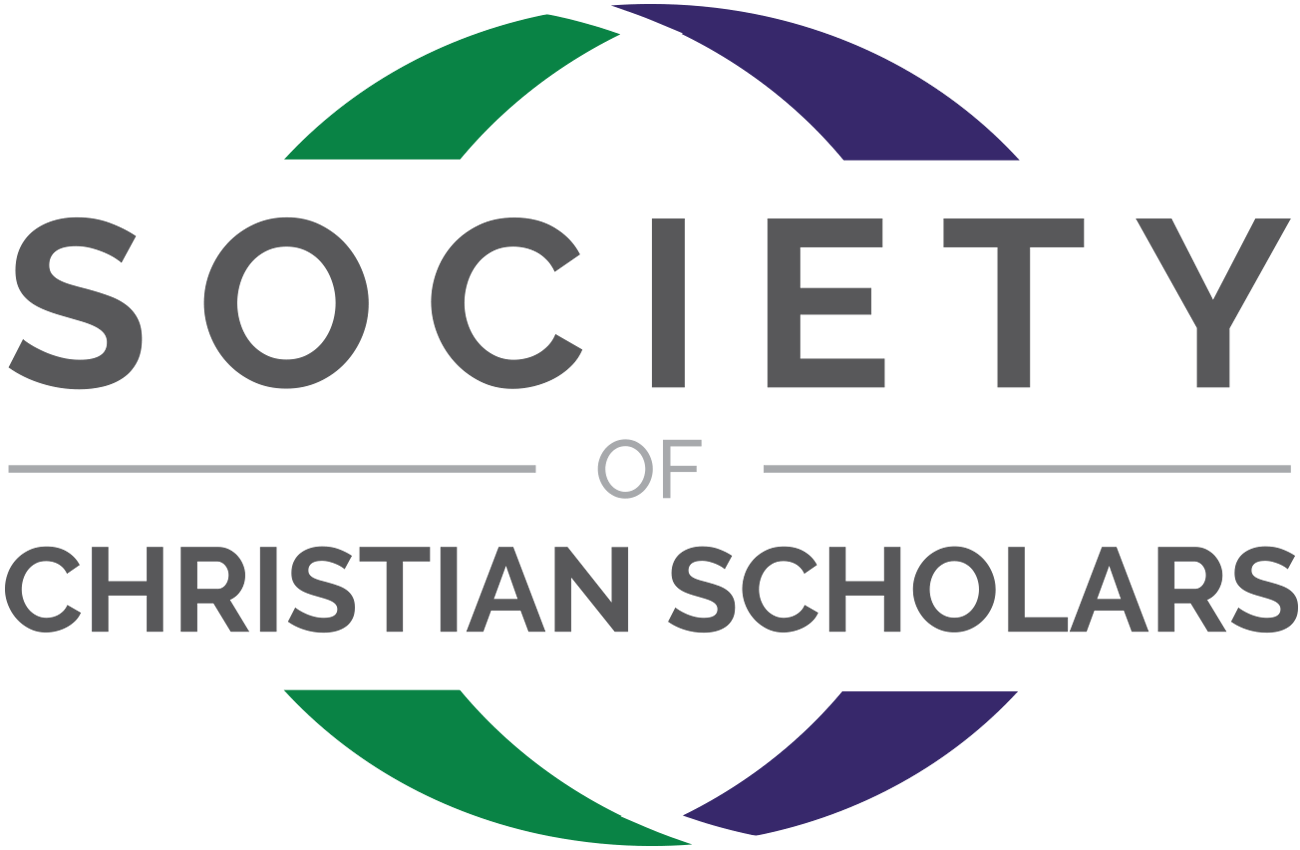NEW SOCIETY READING GROUP
This informal reading and discussion group provides an opportunity to grow together in understanding what it might mean for Christian academics to have redemptive influence in a pluralistic university. This bi-monthly reading group, led by our Librarian Dr. Marlene Hines, will begin on Friday, 21 October 2022 at 1400 UTC. The first reading selection will be Lesslie Newbigin’s ‘The Gospel and the Cultures.’ Join the conversation and register today!
By Dr. Richard Smith (Argentina)
“A learned fool is more foolish than an ignorant one.”
While conducting research for my book (Such a Mind as This), I ran across an intriguing statement by the French playwright Molière (1622–1673). His play “The Learned Ladies” satirizes pseudo-scholars and their acolytes for their pretentious aspiration to glory and influence through knowledge acquisition. In this context, he stated, “A learned fool is more foolish than an ignorant one.”
In my book, I apply Molière’s aphorism to the mentality of Qohelet, the main speaker in Ecclesiastes. He was intelligent and learned. But his intellectual project was skewed and foolish. He grasped for illegitimate knowledge “under the sun.”¹
Is it possible for learned evangelicals to be foolish? Absolutely. Let us consider how.
The fool of Psalm 14, who claims that God does not exist, represents the apex of noetic corruption in the Old Testament.² The fool is not a philosophical atheist, but a functional or willful non-believer. He is an epistemological rebel. He knows deep in his heart that God exists but operates as if God were irrelevant (unknowing, impotent, uncaring). The fool minimizes and marginalizes deity as a form of self-justification for doing evil.³ This outlook is expressed several times in the Old Testament:
In the pride of his face the wicked does not seek him; all his thoughts are, “There is no God.” … He says in his heart, “God has forgotten, he has hidden his face, he will never see it.” (Ps 10:4, 11)
The fool says in his heart, “There is no God.” They are corrupt, they do abominable deeds; there is none who does good. (Ps 14:1)
How can God know? Is there knowledge in the Most High? (Ps 73:11)
The Lord does not see; the God of Jacob does not perceive. (Ps 94:7)
He will do nothing; no disaster will come upon us, nor shall we see sword or famine. (Jer 5:12)
The Lord will not do good, nor will he do ill. (Zeph 1:12)
Ethical maleficence rooted in divine marginalization is not something in which most Christian thinkers engage. However, we do slip into forms of intellectuality that are not in accord with biblical revelation and that minimize God’s dominion. One way this occurs is through an epistemic sacred-secular division.⁴ This mental posture functions as if God’s reign does not extend to all human thinking, as if he were intellectually irrelevant. It is observable in the following practices:
Professors who do academic (secular) thinking from Monday to Saturday and sacred thinking on Sunday.
Devoting oneself to professional intellectual development while also exhibiting aspects of anti-intellectualism or illiteracy with reference to the Bible.⁵
Operating cognitively as if pluralism or relativism is valid and obvious truths.
Failing to recognize sin as an epistemological reality as it applies to personal cognition, as well as social thought.
Negating the importance of apologetics and cultural critique under the influence of tolerance and pluralism.
False neutrality―i.e., imagining that any fact, thought or experience can be properly understood apart from the existence of God, the Creator and Lord, and his revelation.
Theoretical naivete―not thinking about one’s discipline with reference to its fundamental assumptions or the biblical worldview.
Inconsistent intellectual piety―i.e., failure to apply intellectual virtues consistently to each day of the week and every sphere of knowledge.
Each of these compartmentalized ways of thinking minimize God’s lordship over the mind. Indeed, operating as if God is extraneous in any sphere of life, is folly. Such foolishness implies a negation of Jesus’s claims about himself (“I am the way, the truth, and the life”) and ignores the applicability of the Great Commandment to every aspect of life: “Hear, O Israel: The Lord our God, the Lord is one. And you shall love the Lord your God with all your heart and with all your soul and with all your mind and with all your strength” (Mark 12:29–30).
On the other hand, John M. Frame describes a mental posture consistent with the biblical worldview. All human knowing, he says, is “servant knowledge” or “a knowledge about God as Lord and a knowledge that is subject to God as Lord.”⁶
Paul M. Gould explains how this works out in practice, providing guidelines for the would-be missional thinker: “Christian scholars ought to be, among other things, actively engaging the dominant plausibility structures embedded within culture, so that the gospel message can gain a fair hearing.” He adds, “We need Christian scholars to engage the underlying presuppositions of every discipline, correcting assumptions where needed and making connections that have hitherto gone unnoticed, to demonstrate the unity and elegance of the Christian worldview within the fragmented academy.”⁷
Christian thinkers should self-consciously flee folly. They ought to possess epistemic self-awareness. They should know where to draw the line regarding intellectual assimilation.⁸ They must discern the difference between the common good and biblical distinctives. They must navigate epistemological relativism and ontological pluralism, carrying their solid biblical grounding into the world around them for God’s glory and mankind’s blessing.
[1] See chapter 5 of my book concerning Qohelet and chapter 6 about ignorant foolishness.
[2] Paul cites Psalm 14:2–3 in Romans 3:11–12, indicating that noetic depravity is a central and universal aspect of the human condition. As no one obtains epistemic perfection in this life, no one escapes the influence of folly on this side of eternity.
[3] As Dostoevsky noted, “If God does not exist, then everything is permitted.”
[4] Other ways include, for instance, laziness or the lack of curiosity about biblical knowledge.
[5] Christian scholars invest many years of study and thousands of dollars to gain an academic specialty. But how many hours and dollars do they invest in acquiring biblical wisdom? Paul M. Gould et al., observe, “While experts within their own particular fields of study, Christian professors often possess a Sunday school level of education when it comes to matters theological and philosophical … and the result is a patchwork attempt to integrate one’s faith with one’s scholarly work and an inability to fit the pieces of one’s life into God’s larger story.” (The Outrageous Idea of a Missional Professor: International Edition, 18)
[6] Frame, The Doctrine of the Knowledge of God, 40 (emphasis in original).
[7] Gould, “The Consequences of (Some) Ideas,” Cultural Encounters 8, no. 1, 124.
[8] See chapters 13–14 of my book.
* Adapted from “The Learned Fool” by Dr. Richard Smith

Richard Smith (PhD, Historical Theology, Westminster Theological Seminary) co-established the Komenský Institute of Prague, lives in Buenos Aires, Argentina, and serves as Senior Advisor for the Society of Christian Scholars . He also manages the website and blog, Cosmovisión Bíblica (“Biblical Worldview”).
View also Dr. Smith’s two part series on Wisdom:
https://suchamindasthis.com/2022/07/18/wisdom-is-more-than-skill-pt-1/
https://suchamindasthis.com/2022/07/25/wisdom-is-more-than-skill-pt-2/
Society Opportunities
Scholarships Available for Colleagues
Do some of your colleagues struggle to afford Society membership? Remember, when inviting your friends to join our Society, to encourage them to apply for a scholarship to offset their membership fees. Simply tell them that scholarship instructions are available at registration!
Also, recall that we provide Society promotional materials for your colleagues, small groups, church functions, etc.

What journals do you read?
We would like to promote the Society of Christian Scholars in local, academic journals that you read. Please help by emailing a list of these journals to jfoster@SocietyofChristianScholars.org
Upcoming Webinars

Metaphor, Analogy, and Christian Imagination by Susan Felch – 18 August 2022 at 1400 UTC
Theologians, linguists, scientists, and ordinary people have long understood that we don’t merely use metaphors when we speak; rather, metaphors shape the way we think and the ways we perceive the world. Metaphors move us from something familiar to something unfamiliar, from the unknown to the now-known. They are one of the basic ways we come to understand the world.
No metaphor or cluster of metaphors is isomorphic with creation; no semantic description can capture or fully describe its complexity and richness. But metaphors, whether used unconsciously or consciously, can be more or less faithful to reality, more or less wise in the pictures they paint.
One way to enrich our imaginations, and to align them more faithfully with our Creator, is to explore and meditate on metaphors that are used repeatedly in the Scriptures and that resonate throughout the Christian tradition—metaphors such as eating, pilgrimage, and building.
On Thursday, 18 August 2022 at 1400 UTC, Dr Susan Felch, Director of the Calvin Center for Christian Scholarship and Professor of English at Calvin University, will lead a webinar in which she probes the following questions: What are metaphors? Can metaphors lie? Can metaphors illuminate or bridge cultural differences? Do theological metaphors tell the truth about God? How might attentiveness to metaphors enliven our work as Christian scholars, teachers, administrators, and colleagues?
In preparation for the webinar, please read the following excerpt from Dr Felch’s book co-authored with David I. Smith, Teaching and Christian Imagination (Eerdmans, 2016).
Immediately following the webinar, you will have the opportunity to connect and catch up with colleagues from around the world. So plan to stay on the call for another 20 minutes or so if possible.

Diversifying Academic Publishing: Challenges and Possibilities by Suresh Canagarajah – Thursday, 15 September 2022 at 1400 UTC
Recent social movements such as decolonization and anti-racism have accentuated questions on the inequalities and biases in academic publishing. The dominance of North America and Europe is usually explained away by sympathetic scholars as resulting from the limited English proficiency or academic cultural awareness of multilingual writers in the Global South. They overlook, however, other material and structural inequalities that reduce access for these scholars.
On Thursday, 15 September 2022 at 1400 UTC, Dr Suresh Canagarajah, Edwin Erle Sparks Professor of Applied Linguistics, English, and Asian Studies at Penn State University (USA), will describe how he experienced these inequalities when working in Sri Lanka for many years. After fleeing the country as ethnic fighting intensified and finding an academic position in the US, he has attempted to diversify academic publishing in roles as editor of journals, head of professional organizations, and mentor of international scholars. In doing so, he has identified spaces for qualified diversity in recent epistemological, rhetorical, and technological changes.
For a preview of his argument, see his book The Geopolitics of Academic Writing (University of Pittsburgh Press, 2002).
Register TODAY for this insightful and thought-provoking webinar on the geopolitics of academic writing and publishing.
Immediately following the webinar, you will have the opportunity to connect and catch up with colleagues from around the world. So plan to stay on the call for another 30 minutes or so if possible.
NB: Be sure to check out the Webinars Page for third-party webinars that are often added with short notice and for updated presenters and topics that may be helpful in equipping you to bring the gospel to bear in your university context.

